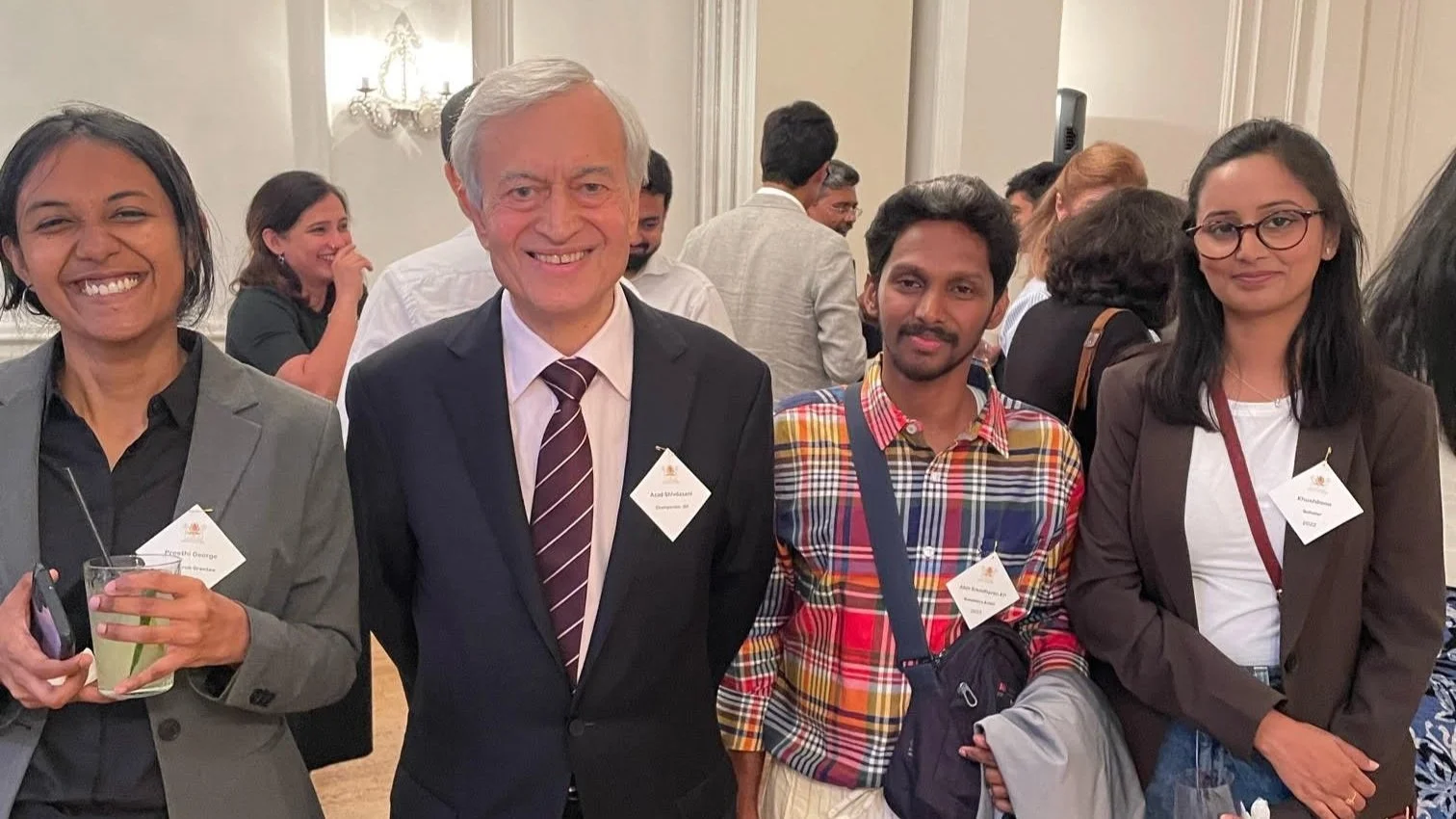Inlaks RS Interns 2023: Kaushik Narayanan and Yashendu Joshi
Kaushik Narayanan and Yashendu Joshi are the Inlaks RS Interns for 2023.
Kaushik is a PhD student at Ashoka University's Department of Biology. He will be joining the research group of Dr. Frank E. Rheindt at the National University of Singapore.
Yashendu is a Research Fellow at the Centre for Wildlife Studies (CWS). For his internship, he will be joining the likes of Dr. Marisa Tellez, at the Crocodile Research Coalition in Belize.
Kaushik Narayanan
Kaushik is a PhD student at Ashoka University's Department of Biology who is conducting his research on the biogeography of old world bats. Fuelled by an unwavering passion for biodiversity and a captivating interest in bats, Kaushik's academic journey is defined by determination, curiosity, and an unyielding commitment to his field.
Having completed an undergraduate degree in Microbiology at Amrita School of Biotechnology, Amrita University, Coimbatore, Kaushik pursued a post-graduate degree in Genomics from Madurai Kamaraj University. However, it was his deep-rooted love for the natural world and wildlife that propelled him towards a more profound exploration of biodiversity conservation, ecology, and evolution research.
Over the past five years, Kaushik actively engaged with renowned organizations including WWF-India, the Kerala Forest Department, and Bat Conservation India Trust, Bengaluru, Karnataka. These valuable experiences greatly enhanced his comprehension of public outreach and conservation efforts and firmly establishing him as a dedicated advocate for the preservation of our ecosystem.
Kaushik's research journey took flight during his master's thesis, where he delved into the captivating world of bat behavioural ecology and their remarkable echolocating abilities. This transformative experience ignited his passion for studying biodiversity conservation, ecology, and evolution, leading him to collaborate with prestigious institutions such as the Indian Institute of Science, Bengaluru, the National Institute of Advanced Studies, Bengaluru and Tel Aviv University.
Currently Kaushik is pursuing his PhD at Ashoka University, New Delhi. He is focusing on unravelling the mysteries of biogeography and discovering the hidden diversity of old-world bats in the majestic landscapes of the Himalayas and the Western Ghats. With a steadfast commitment to academic research and impactful public outreach, his aim is to understand the impact of climate change on bat communities and develop conservation initiatives for lesser-known species.
Kaushik is preparing to join the research group of Dr. Frank E. Rheindt at the National University of Singapore. Here, he aims to explore museomics and historical DNA analysis of bats across Southeast and South Asia, shedding light on the genetic connectivity and identifying priority conservation populations affected by climate change.
Through an interdisciplinary approach, Kaushik hopes to make a significant impact in the realms of biogeography, bat conservation, and ecological research.
Yashendu Joshi
Growing up in Kutch, surrounded by flamingos, cranes, and pelicans, Yashendu developed a keen interest in observing animals from a young age. This interest led him to pursue a master's degree in Science, specializing in Wildlife Biology and Conservation, from the National Centre for Biological Sciences (NCBS-TIFR), Bengaluru, Karnataka. His thesis, entitled "The Crocodile Conundrum of Charotar: Coexistence and Socioecological Connections between Human and Marsh Crocodile Communities in Gujarat, Western India," investigated the behavioural ecology of crocodiles and human communities' attitudes towards them, using an interdisciplinary approach.
Currently, Yashendu is a Research Fellow at the Centre for Wildlife Studies (CWS) Bengaluru, Karnataka, working on projects to understand human–nonhuman relationships. Through the Inlaks RS Internship, he will be collaborating and learning from experts, including Dr. Marisa Tellez, at the Crocodile Research Coalition in Belize. He hopes to acquire new methods and techniques while undertaking a study to establish a baseline understanding of the relationship between human and crocodile communities in Belize. Additionally, he aims to explore the involvement and significance of crocodiles in Mayan culture. He looks forward to expanding on his master's research by conducting a cross-cultural study on human-crocodile relationships.








